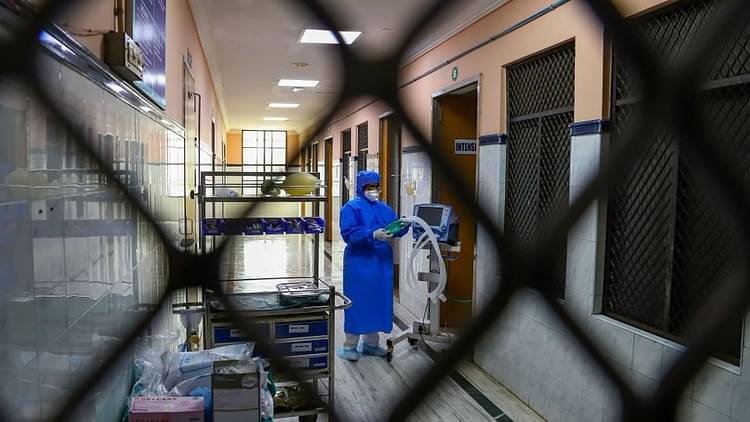This week, April 7, is World Health Day, and we can expect discussions to be largely focused on the second wave of the Sars-Cov-2 pandemic that has hit the nation. When fighting a war, all thinking and resources are naturally focused on the immediate target. But how well we do in war time is a factor of how well we work and prepare in peace time.
Sooner rather than later, the nation must come to terms with the simple fact that our health sector is in a crisis that is far deeper than is visible. The poor suffer because they don’t get healthcare. The rich also suffer because they may get more than they can take; aggressive intervention and huge bills don’t necessarily mean that the sick are taken care of. Between the two, the system is becoming heartless, a place where expertise even if it’s available will fail to deliver because it is disconnected from humaneness. Here are two stories known personally to one of the writers here, coming from in and around Thiruvananthapuram, the capital of Kerala,
From his ICU bed, a 75-year-old man screamed at his daughter, unhappy about the state he was put in. His arms and legs were tied to the bed with canvas restraints. She heard her father shout at the nurse; she had never expected this behaviour from him. Some 100 kilometers away, a housemaid lay ill and alone on a straw mat in a village hut. She could not walk; she had to crawl. On the other side of the mat was a chamber pot into which she had to urinate and defecate. Her granddaughter, on her way back from school, would come and clean up. Her sons and daughters would not come. They had quarreled about the division of her tiny piece of land.
Both patients had received healthcare in the past. Precise diagnosis had been arrived at and treatment did indeed sustain them for a year or two. Now in a state of incurable illness, one was delirious in hospital and tied up while the other was lying alone in utter helplessness. Both are cases in Kerala, a State with “significantly higher healthcare spending per capita than all other States, driven by higher-than-average government spending as well as out-of-pocket spending, which has borne dividends in the handling of the Nipah outbreak as well as in keeping mortality from COVID-19 relatively low despite unfavourable demographics”, as an RBI study of State Finances put it in Oct. 2020. Higher spending on healthcare, especially in the public sector is desirable but it must be accompanied by approaches that promote welfare of the sick, not push them out or put them in an assembly line of the infirm and the suffering.
For example, in India, only about two percent of the needy have access to pain relief. A draconian law passed in 1985 made three generations of doctors unfamiliar with medicines like oral morphine, and the medical curriculum till 2019 did not include pain management. The essential medicines, though inexpensive, are inaccessible to patients in most hospitals.
India grows poppy, produces opium and exports it to the rest of the world. Morphine is extracted from opium. When a major operation, a fracture or cancer causes severe pain, morphine (or one of its derivatives) is essential for relief; no substitute exists in the world for medicines of that class. The scientific world today recognises the principle of balance, which brings in enough restrictions to limit their non-medical or inappropriate use, while at the same time ensuring the access of morphine for pain relief. The necessary modification of the relevant law was made by the Parliament in 2014. However, the relevant rules which were published in 2015 have errors that need correction, and 29 States and six Union Territories have to implement them individually.
Thankfully, though slowly, many positive things are happening. Students who joined medical colleges from 2019 onwards have pain management and most aspects of palliative care built into their curriculum. A growing number of States are implementing the amended law. The government of India’s National Health Policy of 2017 “recognises the growing need for palliative and rehabilitative care for all geriatric illnesses and advocates the continuity of care across all levels.” Currently, healthcare providers all over the country are being trained in palliative care. The national level trainers have already been trained and as they spread education, palliative care will be integrated with primary health care up to a point all over the country.
In the future, perhaps, patients will hopefully get more compassionate and necessary medical attention from healthcare providers in their homes and not be only dependent on intermittent visits from family. This will demand the encasing of health care with ideas of service that alone can offer care with quality and compassion, within the reach of the vast majority,
We will need primary care to be pushed up and then work for the integration of palliative care into primary care. But this will be grossly inadequate without tertiary health care institutions including medical colleges following suit. Secondly, there is something for all of us to do. Healthcare will never be complete till the community around the person and family are engaged. The disintegration of the extended family, and migration of young men and urbanisation, have all caused a social change resulting in the isolation of nuclear families during an illness. This needs to be alleviated by the participation of the community. To paraphrase a sentence from Dr Vikram Patel: “Healthcare is too important to be left to professionals alone”.
The theme for World Health Day, the 7th of April, 2021, is "Building a fairer, healthier world.” If that is to make any sense to us, people should get the right kind of healthcare. And that means healthcare should not only focus on curing diseases but should also prioritise relief from suffering.
































